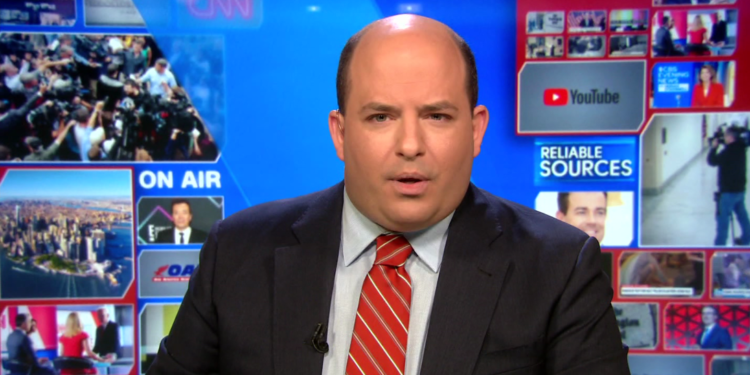The sudden suspension of Jimmy Kimmel Live this week has sparked a heated debate over free speech, political influence, and the role of media in American society. What unfolded within hours of Federal Communications Commission chief Brendan Carr’s remarks demonstrates how quickly decisions at the top can ripple through an industry that prides itself on freedom of expression.
CNN’s Brian Stelter reacted strongly to the move during an appearance on OutFront, telling host Erin Burnett that the United States was a “less free place if late night comedians cannot do and say what they want.” Stelter added, “Of course they can be tuned out. People can change the channel. That’s how we vote. That’s how we have our say in America. This really does have a chilling effect across the American media.”
For many conservatives, the real issue is not whether comedians should have leeway in their routines, but how concentrated power—whether in Washington, Hollywood, or corporate boardrooms—can dictate what Americans are allowed to hear and see. Historically, comedy has thrived as an outlet for dissent, sometimes crude, sometimes biting, but always reflective of the freedom to speak one’s mind. When that freedom bends to bureaucratic pressure or corporate fear, the precedent should concern anyone who values open debate.
Burnett, sensing the weight of the moment, noted, “So let me just ask you, Brian, what more are you’re learning about this just in these minutes? I mean, it truly dropped as I think a shock to anybody who heard it, even if they knew that Brendan Carr the pro-Trump chief of the FCC, had made the comments he made on that podcast. I don’t think there’s anybody who literally thought within hours Jimmy Kimmel would be gone.”
The timeline was indeed jarring. Stelter explained, “Right, absolutely right. In fact, this was very sudden this afternoon after Carr spoke out on that far right podcast. Then some stations that are owned by other companies but affiliated with ABC started to complain to ABC. We know one of them, Nexstar, which has about two dozen stations with the ABC logo and all the ABC programing. Nexstar publicly announced that they were going to drop Kimmel’s show indefinitely. Within a matter of minutes we heard from Disney that the show was being pulled altogether. That suggests to me that other station owners were probably also getting scared. Other station owners were probably also coming up with backup plans not to air Kimmel’s show. But even though we’re talking about comedy, this is so serious.”
This sequence reveals the uneasy balance between freedom of expression and the gatekeepers who control access to audiences. While some argue that a private company has the right to drop programming it deems controversial, others see a deeper problem: when fear of backlash or regulatory scrutiny leads to silencing, the result is not consumer choice but corporate censorship.
From a conservative perspective, the lesson is clear. Free societies cannot allow bureaucrats and media conglomerates to decide which voices are acceptable. Americans should be trusted to change the channel, not have it changed for them. History shows that whenever speech is curtailed—whether through government overreach or cultural intimidation—the burden ultimately falls on the people, not the elites making the decisions.
What happened with Jimmy Kimmel Live may look like a narrow dispute in the entertainment industry, but it strikes at the core of American liberty. If comedians, of all people, cannot speak freely without fear of reprisal, then the definition of free expression is already shrinking. For conservatives, the call is simple: defend the principle of open debate, even when the jokes fall flat or offend, because the alternative is a culture where speech exists only at the permission of those in power.





















This is another JERK that has to be expelled from public viewership.